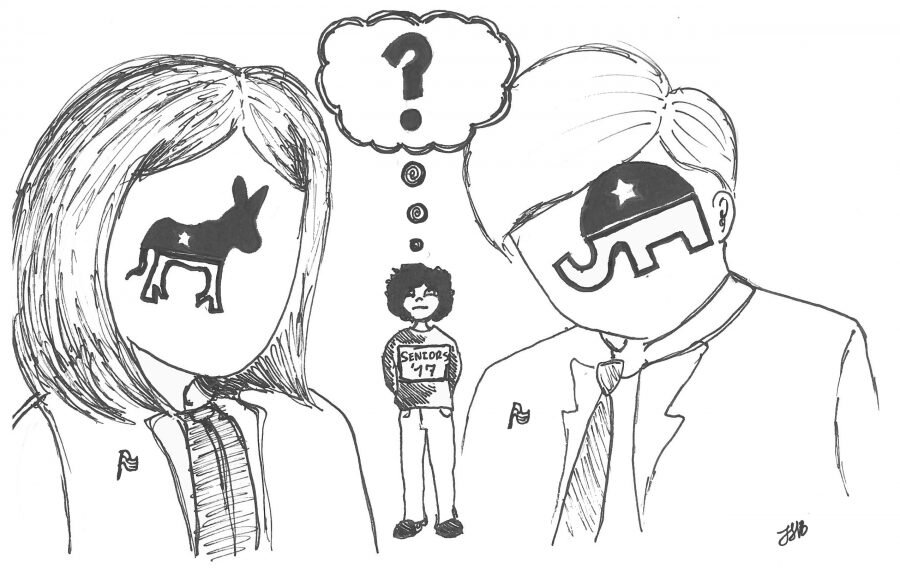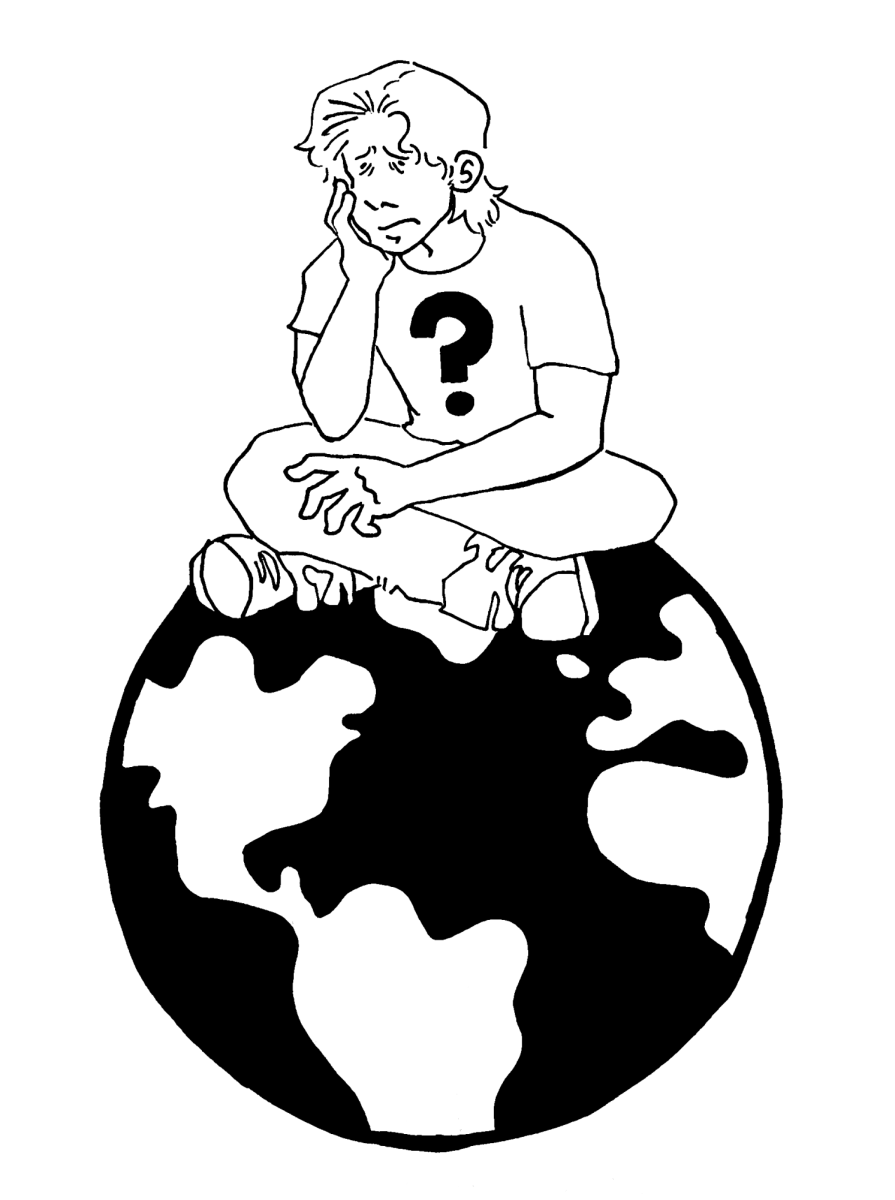Julia Drossler, Staff Reporter
Originally published November 22, 2016
Julia Drossler
A handful of weeks ago, the nation heatedly discussed and deliberated the leadership of our government for the next four years. In the wake of televised debates and last-minute rallies, the eligible voting community had to make up their minds once and for all. In high schools across the country, a select number of students were part of this community: those 18 years and older with U.S. citizenship.
It seemed all eyes were on those students. Who would they choose to vote for? Why would they choose one candidate over the other? While these are both important questions, arguably the most pressing is if they chose to vote at all.
According to a study by The Center for Information & Research on Civic Learning and Engagement (CIRCLE), only 19.9 percent of the youngest eligible voters (18-29 years) actually voted in the 2014 elections. That ranks as one of the lowest turnouts for this age group in electoral history.
As of yet, there are no all-encompassing statistics concerning the current number of participating young voters, but considering a downward trend from 2008 (45 percent of eligible young people voted) to 2012 (only 19.9 percent), this year’s turnout couldn’t possibly be much improved.
So why aren’t we voting? For some, their first swing at political engagement seems daunting, and the paperwork gets pushed to the margins of young students’ busy lives. This year, however, our two most mainstream prospective presidents couldn’t be more different. Common ground has quite left the building when it comes to these two. So wouldn’t it be less stress-inducing to choose one over other?
The beginnings of statistics have emerged about or voting populous. More young voters tend to “lean” democratic, while the leading republican candidate in this race, Donald Trump, gained more raw votes from our age group than did his rival, former Secretary of State and democrat Hillary Clinton. Trump supporters spurned Clinton for her WikiLeaks emails and the resulting fallout, while Clinton supporters berated Trump for his apparent ignorance and rudeness toward specific demographic groups.
A common thread of reasoning among non-voters, therefore, is that there are obvious character flaws in both candidates, or else that the actions of said candidates do not reflect the makings of a political leader. “I guess the people who are running for president this year do not appeal to all the means that the people want,” senior Diego Roberts-Buceta said. “There are so many things that [the candidates] have done to convince us that they’re not eligible.”
I identify with this accusation. Though I do consider myself a democrat, and I’d usually have an easy time of siding with the respective candidate, I’m not at all impressed with either of the leading candidates. Although they both exhibit traits often found in leaders: ambition, patriotism and a significant helping of charisma, their words and actions have led me to feel more than a little disquieted about the future of our country. Part of me even wishes we could re-elect former President Barack Obama for yet another term, but that’s just not possible.
Indecision, as evidenced by the aforementioned statistics of the recent past, could very likely wreak havoc on our political system. What are we to do if we don’t make our preferences heard? Ending up with a no-good political leader for a minimum of four years (unless, by some miracle, they are impeached before then) isn’t a happy prospect.
Alas, I sit among those seniors who have fallen just short of eligibility. Aside from being slightly bitter at being born just over a month past the cut-off date, I’ve resigned myself to shrugging my shoulders. All chatter aside, I do believe that, If one is eligible, one should absolutely vote.
Many seniors keep up with the news, and with so much political polarity being forced down their throats in recent weeks, I’ve got to wonder just how realistic the prospect of voting seems.
“With the electoral college, sometimes voting in a primarily left or right state your vote might not seem important because the state is already going to go democratic . . . or republican,” senior Nick Dotson said. Dotson, who was also unable to vote this electoral season, poses the very real question of how much our votes are really worth. States often decide within their parliaments which end of the political spectrum they support, even if a significant number of their citizens disagree with the end result.
Despite this, many seniors would choose to vote anyway, if they could. I know I would. Regardless of how much one high school student’s vote counts at the end of the day, political involvement is important. Knowing what’s going on outside of one’s daily life allows one to become a more educated and responsible citizen who may, one day, become a politician or even a president of the United States. It all starts with casting one’s vote.

























